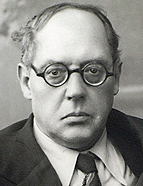

During the First World War, Alfredo Pimenta’s position was markedly pro-German, although Portugal’s participation in the war from 1917 onwards prevented him from openly expressing his desire to see the Allies defeated. In any case, he continued to view the war as a clash of civilisations: on one side stood liberalism and the universalist principles of 1789, and on the other, the forces of counter-revolution (Significação filosófica da guerra europeia [The philosophical significance of the European war], 1915, p. 11), of which he was a part. Symptomatically, it was around this time that he intensified his contacts with Integralismo Lusitano, although he never fully joined the movement. Despite espousing the traditionalist matrix of Integralism, Pimenta viewed it in a more dynamic way, from the point of view of political action, not identifying with the essentially doctrinal and aesthetic perspective of the movement led by António Sardinha and Luís Almeida Braga. With Sardinha, he was elected deputy during the Sidonismo period, but the failure of the presidentialist experiment, on the one hand, and his disagreement with the legitimist line supported by Integralismo Lusitano, were among the reasons that led to his gradual departure from 1921 onwards, accompanied by names such as Caetano Beirão, Fernando Campos and João Ameal, all members of the Portuguese Royalist Action ( , ARP), and the creation, in December 1923, of the Ação Realista Portuguesa and the daily newspaper Ação Realista. The movement, although of little practical importance, was greatly influenced by the ideas of Action Française and Charles Maurras – perhaps even more so than the IL itself. It was while he was leader of the ARP that he was appointed to the Political Council of the Monarchist Cause, resigning, however, in 1926. He supported the coup by Gomes da Costa – whom he advised to act in a letter at the beginning of the year (“My mission is not to put pen to paper, but to take up the sword. If I were a soldier, I would not lay down my sword to take up the pen. [...] When I saw, when I felt that my country had to react, so that it would not be assassinated, I would unsheathe my sword and say to my soldiers: follow me!” – Nas vésperas do Estado Novo, 1937, p. 29).
This work is financed by national funds through FCT - Foundation for Science and Technology, I.P, in the scope of the projects UIDB/04311/2020 and UIDP/04311/2020.
